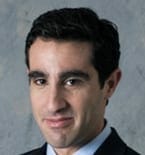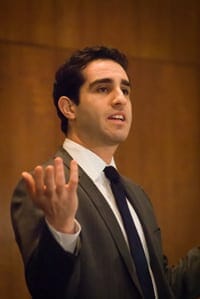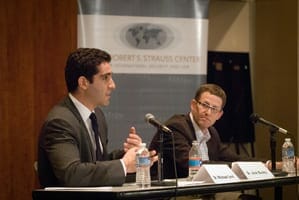By Program

Rebuilding the Global Climate Regime
February 24, 2011 | 5:30:00 | Bass Lecture Hall, LBJ 2.105

The Robert S. Strauss Center for International Security and Law welcomed Dr. Michael Levi, David M. Rubenstein Senior Fellow for Energy and the Environment, Council on Foreign Relations, on February 24, 2011. Josh Busby, Crook Distinguished Scholar at the Strauss Center, introduced Dr. Levi.
Dr. Levi began the discussion by providing a historical overview of the development of global climate change treaty regime. He noted that, in addition to the challenge of getting divergent interests come to agreement, the climate regime has been hindered by basic disagreement over the effects of climate change and the efficacy of policies in mitigating those effects. Furthermore, the United States, a key player in any effort to address climate change, has been slow to commit to emissions reductions obligations.

Dr. Levi’s account of negotiations preceding the climate change talks in Copenhagen in 2009 offered insight into the difficulty inherent in trying to compel a diverse set of interests to reach a consensus. The resultant Copenhagen Accords were predictably and roundly criticized, particularly by those who hoped for a more substantive, binding agreement. However, for those who believe, as Dr. Levi does, that mitigating climate change begins with domestic policy implementation, and that international frameworks should play a secondary role, expectations for the Copenhagen talks were lofty and unrealistic. Although expectations for the 2010 climate talks in Cancun were similarly dire, the outcome of the negotiations is generally regarded as a step in the right direction due to better mediation and logistics.
Dr. Levi noted that despite the different assessments of the outcomes of Copenhagen and Cancun, the agreements were substantively similar. Dr. Levi offered suggested there are lessons to be learned from the disparate reactions to Cancun and Copenhagen: (1) process matters but its importance is often overestimated; and (2) small countries play an important role in making or breaking a global climate change regime. With respect to future negotiations, it is important to account for these lessons and keep expectations realistic. In the end, the success of any climate change regime will depend largely on the ability of nations to implement effective domestic legislation.
Dr. Levi concluded the talk by fielding questions from the audience about U.S. policies on climate change, the importance of bilateral relationships to a global climate change regime and the role of developing nations in addressing climate change.

Michael A. Levi is the David M. Rubenstein senior fellow for energy and the environment at the Council on Foreign Relations (CFR). He is director of the CFR program on energy security and climate change and was project director for the CFR-sponsored Independent Task Force on climate change. His interests center on the intersection of science, technology, and foreign policy, including energy, climate, and nuclear security.
He is the author of the book On Nuclear Terrorism (Harvard University Press, 2007) and coauthor with Michael O’Hanlon of The Future of Arms Control (Brookings Institution Press, 2005). His 2005 monograph with Michael D’Arcy, Untapped Potential: U.S. Science and Technology Cooperation with the Islamic World, was the first comprehensive study of science and technology in the Muslim world. Dr. Levi holds a PhD in war studies from the University of London (King’s College), where he was the SSHRC William E. Taylor fellow. He holds an MA in physics from Princeton University, where he studied string theory and cosmology, and a BSc (Hons.) in mathematical physics from Queen’s University (Kingston).
Watch the full presentation below:


